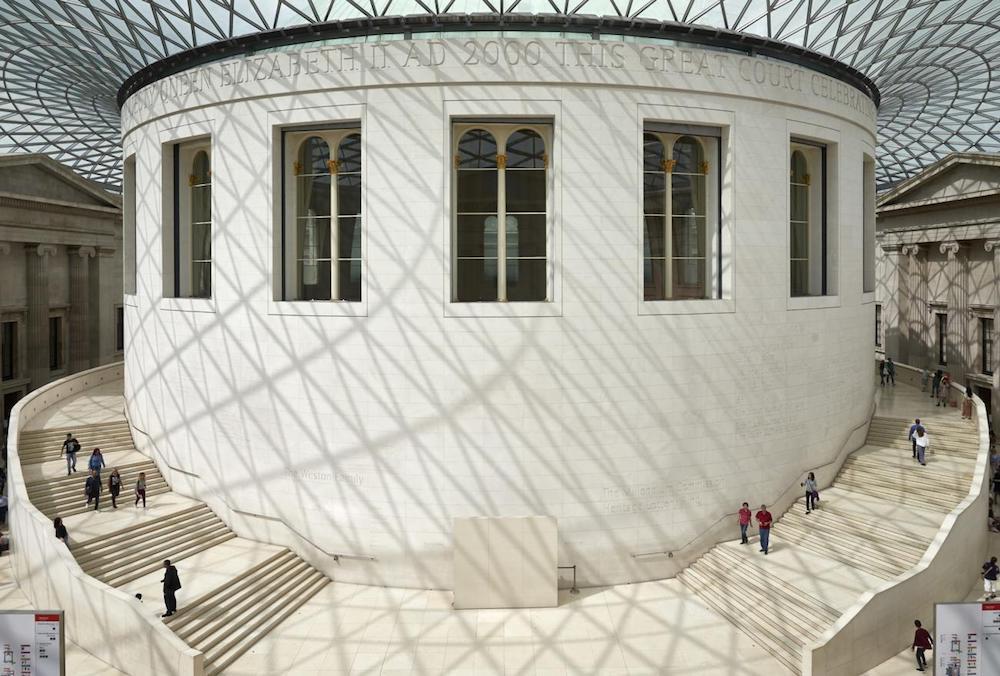The British Museum confirms that BP is out as Arctic exhibit sponsor
The oil firm with activities in Alaska and investments in Russian Arctic has been asked not to contribute to museum’s biggest climate-change exhibition to date.

London’s British Museum has distanced itself from one its biggest benefactors by confirming that it will drop the oil and gas firm BP as the primary sponsor of an exhibition about the Arctic planned to open in May.
The museum had made it known in July that it would not include BP on the sponsors’ list for “Arctic: culture and climate.” The decision was confirmed on Sunday by The Times, which reported that the American investment bank Citigroup would be the exhibition’s corporate sponsor.
Details about the exhibition are due to be made public on Thursday, but it has already been described as the British Museum’s biggest addressing climate change, and will focus on the people of the region and how “the dramatic loss of ice caused by climate change is testing their adaptive capacities and threatening their way of life.”
[Citing climate change, Goldman Sachs rules out new Arctic oil financing]
The British Museum has received funding from BP since 1996. In 2016 the museum, together with the Royal Opera House, the National Portrait Gallery and the Royal Shakespeare Company, entered into a five-year, £7.5 million ($9 million) sponsorship agreement with BP. How much the individual institutions receive is not public, but if the money is divided evenly, the amount the British Museum receives would be less than 1 percent of its annual budget.
The museum’s decision comes as activist groups and some cultural figures have begun questioning whether it is appropriate for Britain’s leading cultural institutions to accept funding from one of the world’s largest producers of fossil fuels.
In August, during a public discussion with representatives from the museum and BP, Chris Garrard, of Culture Unstained, a group seeking to force cultural institutions to end their partnerships with producers of fossil fuels, described the British Museum of being “ethically conflicted” for recognizing the threat of global warming, yet accepting money from an oil firm.
Garrard singled out BP’s efforts to convince the Trump Administration to expand drilling in Alaska, saying that it was “at odds” with the Arctic exhibition, regardless of whether BP was sponsoring it.
[Trump administration schedules another Arctic oil lease sale amid push for more Alaska drilling]
The British Museum, like other cultural institutions, says it understands the complaints, but defends corporate donations, arguing that things like its policy of free admission, as well as certain exhibitions and conservation programs, would not be possible without external funding.
Nevertheless, other institutions have ended their relationships with BP, or seen the firm decide not to renew partnerships in the face of ongoing activism. In October, the Royal Shakespeare Company decided to stop its partnership with BP after Mark Rylance, one of its main actors, left in protest over its links to the oil firm. And, in Scotland, that country’s National Galleries ended a separate relationship with BP in October, citing a “responsibility to do all we can to address the climate emergency.”
Though not involved in the current campaign, Greenpeace, a conservancy, took the British Museum to task in 2016 over BP’s sponsorship of its “Sunken Cities” exhibit. During a demonstration that temporarily closed the museum, 14 activists hung banners from the museum reading “Sinking Cities” and displaying the names of cities threatened by rising a sea level as ice caps melt.
While that protest was unable to prevent the museum from entering into the current agreement with BP, it came on the heels of a 2014 Arctic-themed campaign to force Lego, a toymaker, to end its partnership with Shell at a time when the firm was exploring for oil in the waters off Alaska.